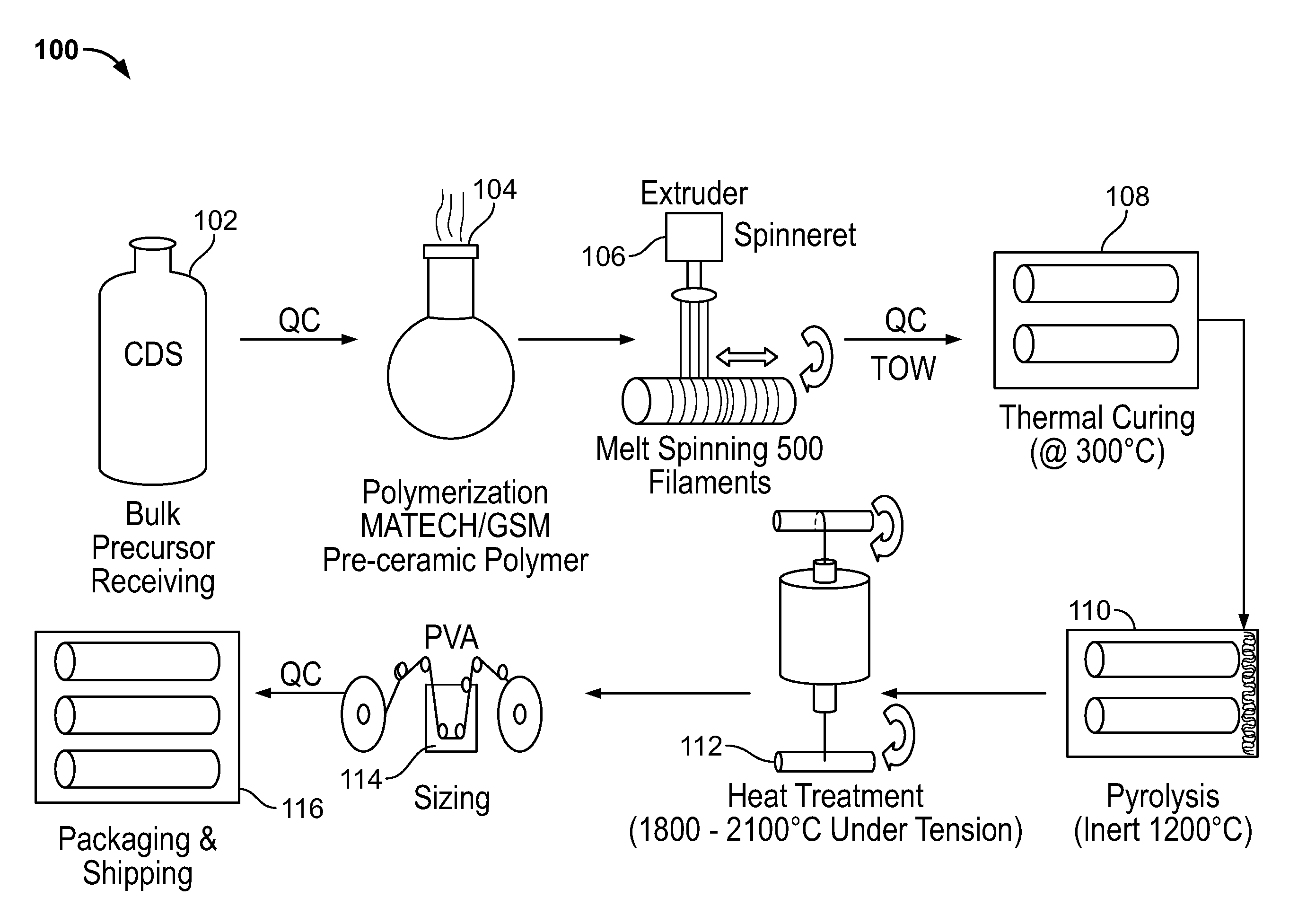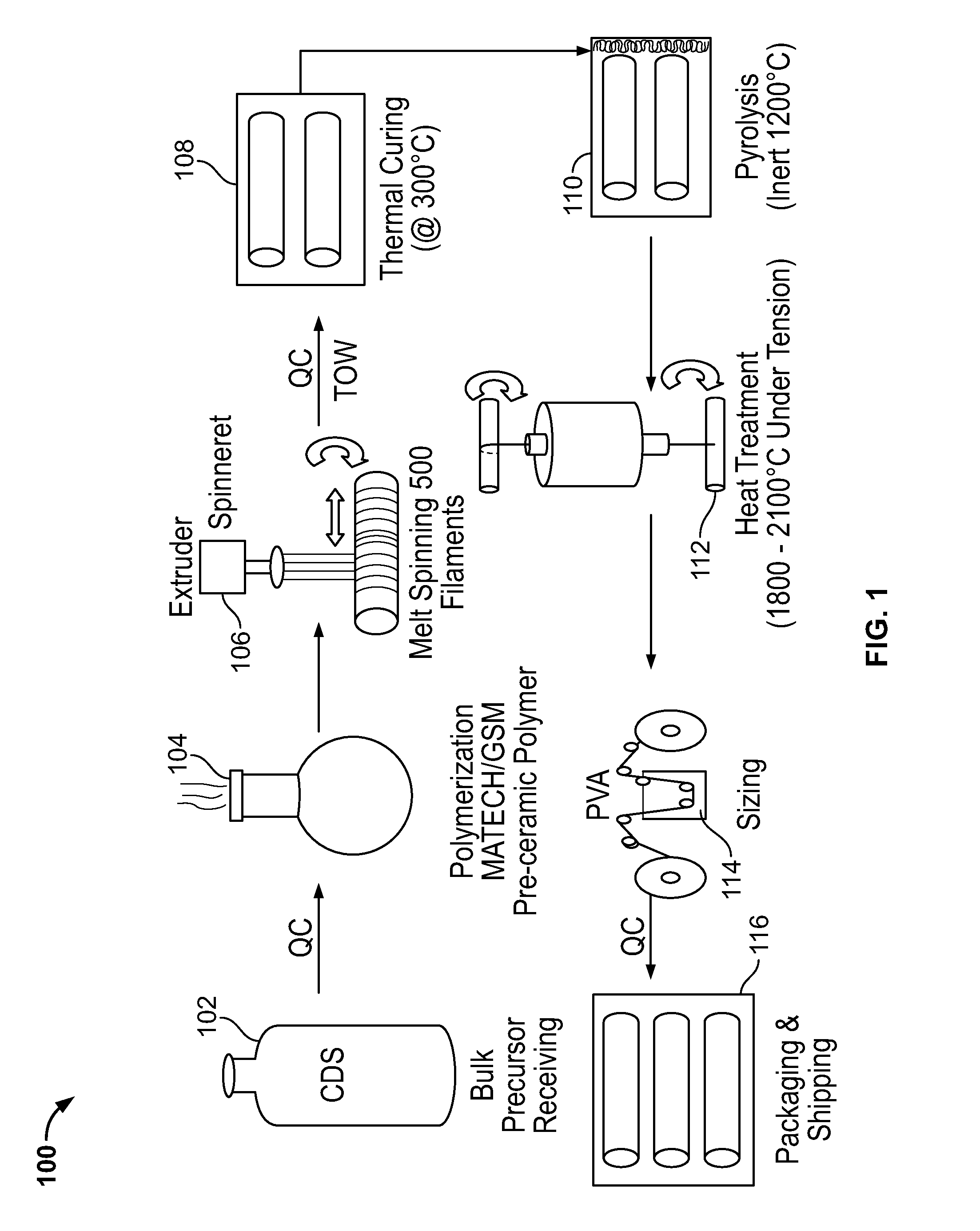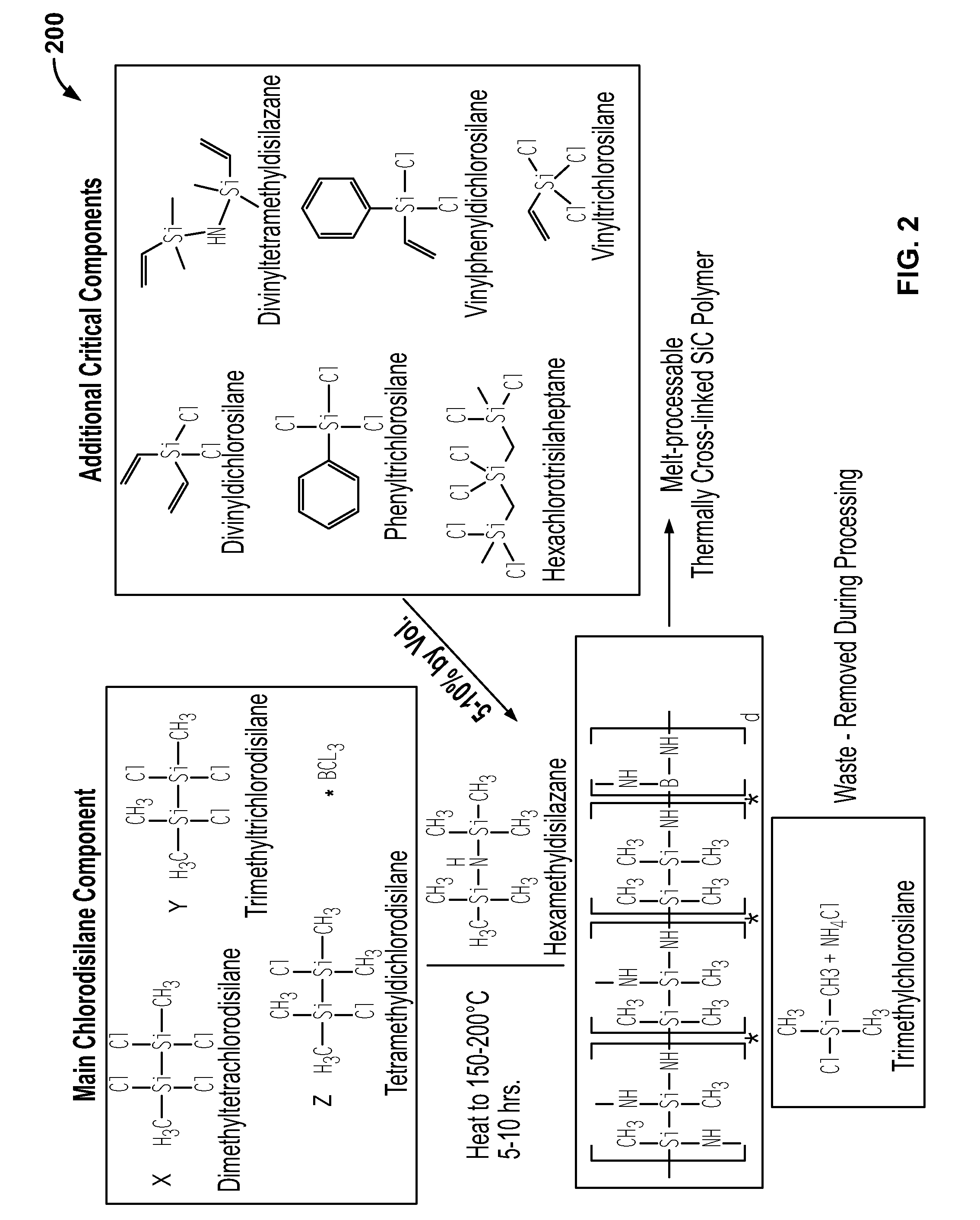Stiochiometric silicon carbide fibers from thermo-chemically cured polysilazanes
a technology of thermochemical cure and silicon carbide, which is applied in the direction of carbides, yarns, transportation and packaging, etc., can solve the problems of fibers with undesired high variability in physical properties, undesired high manufacturing cost or complexity, and known processes are limited to production, so as to reduce the variability of materials properties and reduce the manufacturing complexity of high temperature fine sic fibers.
- Summary
- Abstract
- Description
- Claims
- Application Information
AI Technical Summary
Benefits of technology
Problems solved by technology
Method used
Image
Examples
example 1
[0042]Polymer Synthesis:
[0043]1. Base polymer:[0044]200 g. dow corning CDS and[0045]100 g. 1M BCI3
[0046]2. Vinyl Addition (thermal and e-beam cross-linking)[0047]90 g. vinylphenyldichlorosilane, 800 g. of 1-3 divinyltetramethyldisilazane
[0048]3. Chemistry / Rheology modifier[0049]35 g. phenyltrichlorosilane. 50 g. of SiCl4
[0050]1,2,3 are added to a single pressure equalizing addition funnel and mixed well. The mixture of 1,2,3 is then added to 400 grams of HMDS and 800 grams of 1-3 divinyltetramethyldisilazane in a continuously stirred tank reactor with exhaust ports to drive of low boiling waste products. The tank is heated to 180° C. over 5 hours and treated at 180° C. for an additional 3 hours. The solid resin is then melt-spun at 150° C. under inert conditions, and then prepared for cross-linking and pyrolysis / heat treatment.
example 2
[0051]Polymer Synthesis:
[0052]1. Base polymer:[0053]200 g. Dow Corning CDS and[0054]100 g. BCI3
[0055]2. Vinyl Addition (thermal cross-linking)[0056]15 g. dichloromethylvinylsilane
[0057]3. Chemistry / Rheology modifier[0058]35 g. phenyltrichlorosilane
[0059]1,2,3 are added to a single pressure equalizing addition funnel and mixed well. The mixture of 1,2,3 is then added to 400 grams of HMDS in a continuously stirred tank reactor with exhaust ports to drive of low boiling waste products. The tank is heated to 180° C. over 5 hours and treated at 180° C. for an additional 3 hours. The solid resin is then melt-spun at 150° C., under inert conditions, and then prepared for cross-linking and pyrolysis / heat treatment.
example 3
[0060]Polymer Synthesis:
[0061]1. Base polymer:[0062]200 g. Dow Corning CDS[0063]100 g. BCI3
[0064]2. Vinyl Addition (thermal cross-linking)[0065]15 g. dichloromethylvinylsilane
[0066]3. Chemistry / Rheology modifier[0067]24 g. phenyltrichlorosilane[0068]10 g. 2,2,4,4,6,6-hexachloro-2,4,6-trisilaheptane
[0069]1,2,3 are added to a single pressure equalizing addition funnel and mixed well. The mixture of 1,2,3 is then added to 464 grams of HMDS in a continuously stirred tank reactor with exhaust ports to drive of low boiling waste products. The tank is heated to 180° C. over 5 hours and treated at 180° C. for an additional 3 hours. The solid resin is then melt-spun at 150° C., under inert conditions, and then prepared for cross-linking and pyrolysis / heat treatment.
PUM
| Property | Measurement | Unit |
|---|---|---|
| Temperature | aaaaa | aaaaa |
| Temperature | aaaaa | aaaaa |
| Temperature | aaaaa | aaaaa |
Abstract
Description
Claims
Application Information
 Login to View More
Login to View More - R&D
- Intellectual Property
- Life Sciences
- Materials
- Tech Scout
- Unparalleled Data Quality
- Higher Quality Content
- 60% Fewer Hallucinations
Browse by: Latest US Patents, China's latest patents, Technical Efficacy Thesaurus, Application Domain, Technology Topic, Popular Technical Reports.
© 2025 PatSnap. All rights reserved.Legal|Privacy policy|Modern Slavery Act Transparency Statement|Sitemap|About US| Contact US: help@patsnap.com



